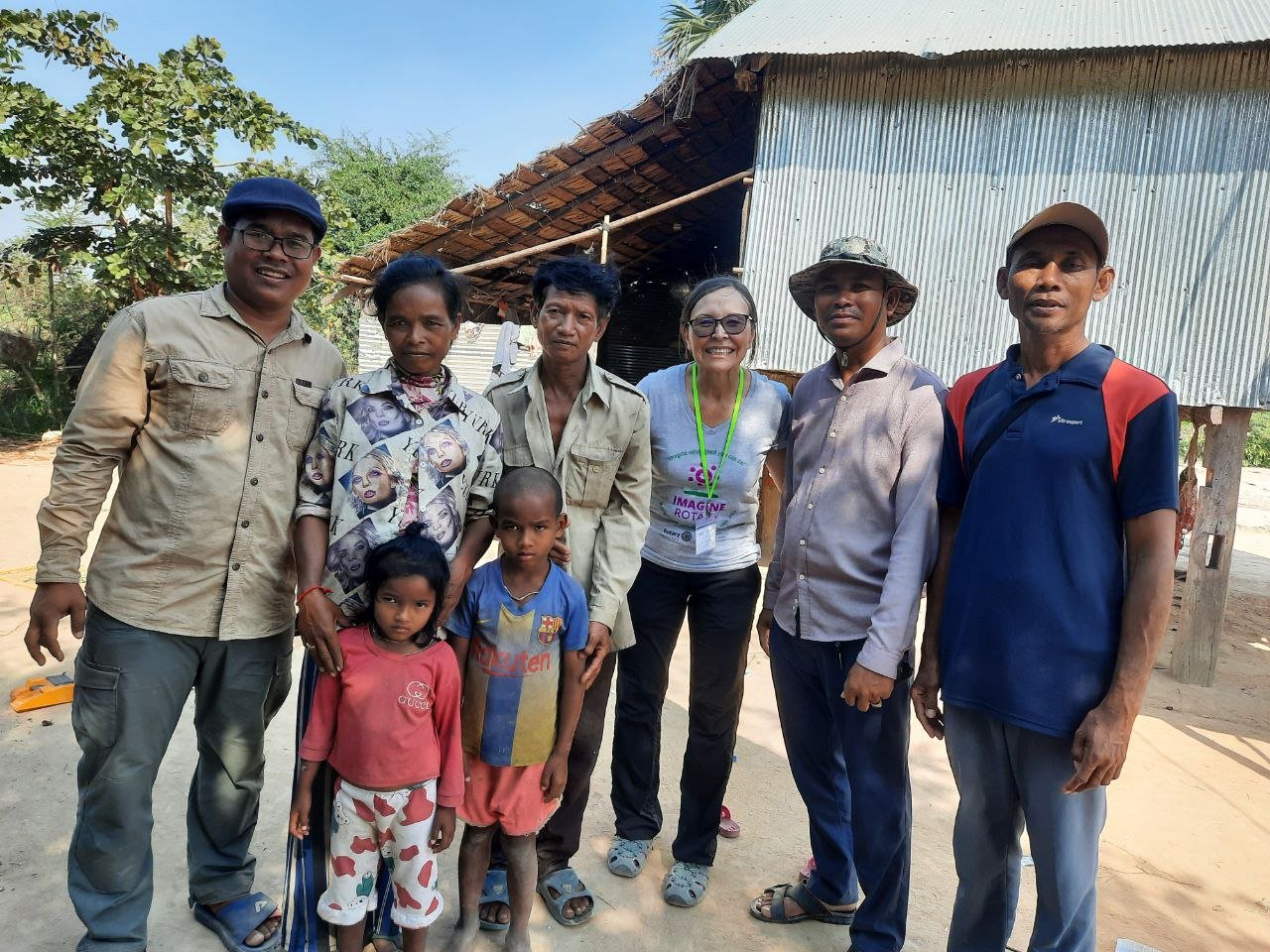Freeport-Merrick Rotary Club helps Cambodian villagers
Rotarians from across the globe, including the Freeport-Merrick Rotary Club, gathered in Cambodia in January and February with the mission of making a positive impact on smaller communities through various projects known collectively as Sustainable Cambodia.
The program is intended to support rural families by helping them achieve a sustainable quality of life. It focuses on providing safe water and sanitation, promoting regular incomes, ensuring access to healthy food, and facilitating quality education for children.
Through a community-driven approach, village families are empowered to build schools, install wells, and learn alternative agricultural practices, and develop skills that will help them manage community projects. A unique “pass-on” model enables families to share their newfound knowledge with neighboring villages, building human resources and fostering self-reliance.
Emily Margilus, co-president of Freeport-Merrick Rotary and a longtime volunteer, made the trip for the second time this year, five years after her first. “We go over there and we talk to the village leaders about what we can do or what they need,” Margilus said.
The club collaborates with the villagers to assess their needs and develop solutions to the challenges they face, along with other Rotarians from around the world. The villagers are encouraged to “pay it forward” in the interest of long-term sustainability.
“This past trip, I visited a few of the families in Domrey Sor village, Koh Chom commune, Kandieng district and Pursat province,” Margilus said. “We were told to ask two questions: How are you thriving with the projects that are impacting you through Sustainable Cambodia. And what else do you need?”
The Rotarians overcome the language barrier by working with village project leaders who translate, as well as students the club sponsors from afar, who attend special Sustainable Cambodia schools where they not only perfect their native language, but also learn English, technology and public speaking.
Rotary International has a strong commitment to community development, which is reflected in its focus on seven core pillars: peace building and conflict prevention, disease prevention and treatment, water sanitation and hygiene, maternal and child health, basic education and literacy, community economic development, and environmental sustainability.
Freeport-Merrick club members got involved in hands-on projects including assembling bio-sand filters and painting, and shared meals with the villagers. Many of the locals don’t speak English, and some of the children don’t attend school because of the lack of clean water.
Club members donated school supplies and library books, and funded the purchase of 94 bicycles for students. The team not only made a significant impact on the local communities, but also developed strong bonds of friendship.
They also funded a new water system at Phnov School, providing easy access to water for 154 students, including 84 girls, for their daily needs. The system connects directly from a well to two 2,000-liter containers, ensuring that a large amount of water is stored for the school’s hygiene facilities.
“A lot of children in villages cannot attend school, because they’re required to help obtain water,” Margilus explained. “If they’re too young to collect water, they end up drinking contaminated water and getting sick, which prevents them from attending school. Even if they’re healthy enough to attend school, they’re needed by their families to contribute to the household income or to gather food.”
This need to help the residents of these villages has been particularly critical in the aftermath of the Khmer Rouge genocide, and the Rotarians’ efforts have enabled families to rebuild their lives and plan for the future.
“At first, I was hesitant to interact with the children and people in the villages due to their dirty appearance,” Margilus acknowledged, “but soon after arriving and experiencing their warm hospitality, my feelings of discomfort faded away. I empathize with their struggles and wanted to help, which led me to sponsor my first child a few months after my initial visit. Since then, I’ve sponsored two more children, and continue to support their education every year.”
Sponsoring a child in Cambodia can make a big impact on their education, and their community. Children face barriers including poverty and lack of resources, which hinder their education. Sponsoring a child gives him or her access to resources like tuition fees and school supplies.
During her most recent visit, Margilus noted the improvements in village life since the club’s last visit in 2018. She said she saw significant changes to village life, including the growth of vegetables in addition to the local staples of rice, palm sugar and coconuts. The children she saw were also healthier and happier, and attending school regularly. The villagers expressed their gratitude for the contributions of their international visitors.
"As someone once said, ‘To whom much is given, much is expected,’ and this sentiment deeply resonates with me,” Margilus said.

 49.0°,
Fair
49.0°,
Fair 




